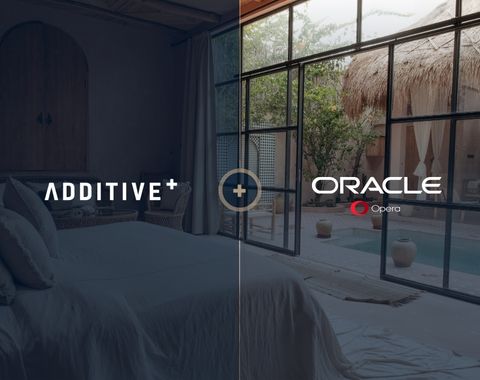
What “Book on Google” means for the Tourism Industry

'Book on Google' is changing the way travelers make reservations. Learn about the benefits this feature offers the tourism industry and how hoteliers can use it to optimize booking processes and expand their reach.
Google accompanies users through the phases of inspiration (trip planning), information and selection. The way is now open for the next step: as from December 2018, the "Book on Google" tool is also available to users in Europe. With the new function, users can book a stay without having to leave the Google interface. This extends the already familiar Google Hotel Ads program, inputting travel data that is then forwarded to the relevant destination booking page.
How does "Book on Google" actually work?
To accept bookings against a commission, hoteliers need to dock the Internet Booking Engine (IBE) on their website directly with Google – provided the hotel has already signed up to the Google Hotel Ads service. With the "Book on Google" service activated, it shows the option of booking directly on Google after entering the name in the search field. Booking is a three-step process. First you need to select the desired period and type of room required. Enter your name, email address and telephone number. If you’re already logged in to your personal Google account, then skip this step and pay by entering your credit card details. Google Wallet users have the advantage of only having to enter the three-digit CVC or CVV2 number. Once payment has been made, Google confirms the booking and confirmation is also received from the hotel. From this point on, any further communication takes place directly between the client and the hotel. For example, notice of cancellations must be directed at the hotel only. Besides hotels, "Book on Google" is also utilised by OTAs.
What are the costs associated with "Book on Google"?
As already mentioned, membership of the Google Hotel Ads program is a prerequisite for using the new Google booking tool. The "Book on Google" function is theoretically free of charge and Google applies the same per click charge or per booking commission as the Google Hotel Ads program. Partners or OTAs representing the hotel may incur a fee if they use "Book on Google".
What is the impact of "Book on Google" on tourism in Europe?
Currently, only a few hotels and hotel partners use the new Google booking tool, so the future prospects of "Booking on Google" in Europe are as yet unclear. Previous booking models from other meta providers such as TripAdvisor or Trivago haven’t been very successful. Google has the advantage of not having to incur costs for traffic, which means that partners are charged less for these services. The new "Book on Google" function is, however, set to bring Google into direct competiton with meta-search engines and OTAs, which will have to invest more in Google in order to stay visible. Other advantages over classic OTAs include increased user-friendliness when booking and the direct line of contact between host and guest. Booking takes just a few steps without rerouting to target pages and Google users are guided through the process quickly and easily. Once the contact between hotel and guest is established, the host can make use of the collected data for further marketing purposes. Google also benefits thanks to the data provided on user behaviour, room selection preferences, chosen time period and price class. This enables it to react with improved accuracy to search queries, thus optimising its response.
Conclusion
By bundling various services together, Google seeks to provide travellers with a seamless travel platform, and "Book on Google" is yet another a step in this direction. According to Google, the intent is to simplify travel planning as it links users with its own services throughout the entire customer experience. Additional sales opportunities are created, providing some advantages over traditional OTAs. On the other hand, the competition it creates between Google and other meta-search engines means that there’s the risk that distribution costs might rise in the longer term. “Book on Google” is certainly a step forward in terms of user-friendliness, but it causes hotels and OTAs to lose visibility. Tracking direct bookings on their own websites becomes more difficult and smaller businesses in particular are driven into a state of dependency. Moreover, “Book on Google” provides scarce transparency to the consumer. Product representation is lost and this can prove disadvantageous at the inspirational phase when the user is still deciding, especially in cases when more explanation is needed. It remains to be seen whether "Book on Google" will survive in Europe and if it will eventually replace OTAs.














